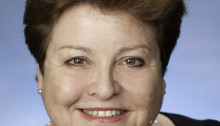Missouri film wins Chinese ‘Oscar’
A film that recounts the Joplin Globe’s coverage of the deadly tornado that devastated that southwestern Missouri city in May 2011 has won the China Academy Award for Documentary Film in the Foreign Language category. The Missouri film, “Deadline in Disaster,” beat competition that included a National Geographic project that focused on the decade of the 1980s and a BBC documentary on the history of the world.

